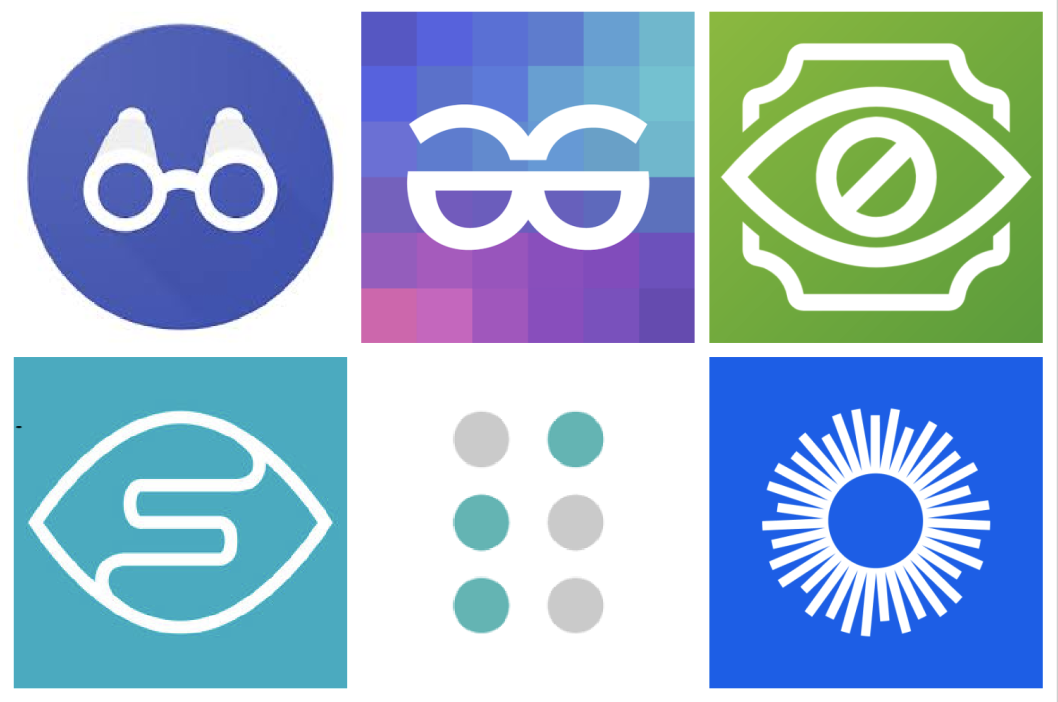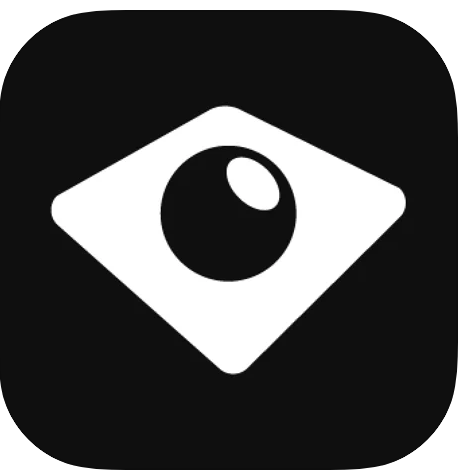
The 7 Best Apps to Help People with Visual Impairments Recognize Objects
An adult with a visual impairment shares his recommendation for the best apps to help people who are blind or with low vision to recognize objects. Includes suggestions for both iOS and Android.
By Moses Gitari
Living with low vision or blindness can present numerous challenges on a day-to-day basis. Simply running errands, preparing meals, recognizing objects, and performing tasks at home or work can become overly complicated and frustrating, to say the least. Thankfully, there are plenty of mobile applications available to offer assistance to people with visual impairments. Many of these are low-cost or free.
These image recognition apps let you identify currency, plants, products, and more using your Android or iPhone camera.
So, without any further ado, let’s dive right into the details!
TapTapSee
 TapTapSee is an app that allows the visually impaired and blind community to accurately identify objects they encounter in their daily lives without the need for sighted assistance. Using your iPhone camera, you can take a photo at any angle and hear the description of the object read back to you. The app also features an auto-focus notification and sharing options. In addition, you can have the last image identification repeated. Finally, you can upload photos from your camera roll for identification and even save them to your phone afterward with the provided definitions for easy reuse.
TapTapSee is an app that allows the visually impaired and blind community to accurately identify objects they encounter in their daily lives without the need for sighted assistance. Using your iPhone camera, you can take a photo at any angle and hear the description of the object read back to you. The app also features an auto-focus notification and sharing options. In addition, you can have the last image identification repeated. Finally, you can upload photos from your camera roll for identification and even save them to your phone afterward with the provided definitions for easy reuse.
See also: Academic Apps – Part 2.
Download: TapTapSee for Android | iOS (Free)
Lookout by Google
![]() If there’s a brand you can trust more than others to provide useful and reliable innovations, it’s Google. By using your smartphone’s rear-facing camera, Lookout identifies important items in your environment and reports the information it believes is relevant. This might include things like exit signs, the location of a bathroom, people or objects nearby, and even text in a book. Lookout’s spoken notifications are designed to be used with minimal interaction so that they don’t distract you or get in the way.
If there’s a brand you can trust more than others to provide useful and reliable innovations, it’s Google. By using your smartphone’s rear-facing camera, Lookout identifies important items in your environment and reports the information it believes is relevant. This might include things like exit signs, the location of a bathroom, people or objects nearby, and even text in a book. Lookout’s spoken notifications are designed to be used with minimal interaction so that they don’t distract you or get in the way.
See also: Android Apps for Users with Visual Impairment.
Download: Lookout by Google for Android (Free)
Seeing AI
![]() Designed by Microsoft, Seeing AI allows users to use the rear camera on the smartphone to identify and narrate the world around you, turning the daily unseen into an audible experience. The app can identify objects, text, and even people. You can use Seeing AI to complete multiple tasks you’re otherwise incapable of doing due to your visual impairment.
Designed by Microsoft, Seeing AI allows users to use the rear camera on the smartphone to identify and narrate the world around you, turning the daily unseen into an audible experience. The app can identify objects, text, and even people. You can use Seeing AI to complete multiple tasks you’re otherwise incapable of doing due to your visual impairment.
Simply navigate to the Scene Preview channel. Once you are ready, double tap the “Take Photo” button. The app will describe the surroundings. At the top of the screen is a “Close” button. Below the description are options to save and share the photo.
See also:
- Seeing AI: Free App Narrating World Around You
- Lesson Ideas for Teaching Students to Use Seeing AI App
Download: Seeing AI for iOS (Free)
Supersense
 Clearly, when it comes to accessibility, less is more. Supersense is one more example of great software that can boost your confidence when out and about, despite very minor flaws.
Clearly, when it comes to accessibility, less is more. Supersense is one more example of great software that can boost your confidence when out and about, despite very minor flaws.
The app’s Object Explorer mode uses streaming video from your smartphone camera. No need to take photos and wait for images to be uploaded and analyzed.
Likewise if you’re sitting in a room and you want to know what’s around, fire up the Supersense app and enable Object Explorer. Slowly pan the phone and the app will identify and speak the names of furnishings: sofas, chairs, lamps, picture frames and such. Again, the identification happens in real time—very handy for a quick look-around to orient yourself in an unfamiliar room or office setting.
Download: Supersense for Android | iOS (Free, in-app purchases available)
Be My Eyes
![]() Be My Eyes pairs blind people with sighted volunteers who help them identify objects using a smartphone app and camera.
Be My Eyes pairs blind people with sighted volunteers who help them identify objects using a smartphone app and camera.
One notable difference that does appear to exist between Be My Eyes and other apps, is that Be My Eyes uses live video chat to communicate with the volunteer at the other end, whilst other apps will require you to take a photo. The person who’s blind connects to people with sight, points the smartphone camera at things and gets help seeing what they are. The app rings — a monotonous, droning ring — until both sides are connected.
Download: Be My Eyes for Android | iOS (Free)
Bespecular
![]() This is a pretty fantastic app to use when you need help. The app offers a very unique and simple process to get a remote volunteer to help you out on something you need. You will and can get multiple of responses to your questions. It gives you a variety of different answers to get that question answered that you want and need.
This is a pretty fantastic app to use when you need help. The app offers a very unique and simple process to get a remote volunteer to help you out on something you need. You will and can get multiple of responses to your questions. It gives you a variety of different answers to get that question answered that you want and need.
What separates this app from the park is the ability to send a question along with the picture of the object you want identified to a community of volunteers.
A visually impaired person can ask a question, for instance taking a photo of an outfit they would like to wear and ask a question such as, does the outfit match my shoe and then that question is sent to a community of volunteers who can then provide a feedback”
See also: Flip-Over FACES App to Explore Facial Expressions
Download: BeSpecular for Android (Free)
Cash Reader
![]() Whether you need to hand out cash or count bills given to you, check out the Cash Reader app. This tool not only speaks the denomination but also vibrates and displays it in large contrasting numbers on the screen for those discreet situations. The app supports over 100 currency denominations and multiple languages. It doesn’t matter which way you use it, even if you show just a small portion of the banknote to the camera, it will work. So, make sure you get the correct change or assistance with counting your cash with Cash Reader.
Whether you need to hand out cash or count bills given to you, check out the Cash Reader app. This tool not only speaks the denomination but also vibrates and displays it in large contrasting numbers on the screen for those discreet situations. The app supports over 100 currency denominations and multiple languages. It doesn’t matter which way you use it, even if you show just a small portion of the banknote to the camera, it will work. So, make sure you get the correct change or assistance with counting your cash with Cash Reader.
Download: Cash Reader for Android | iOS (Free, subscription available)
“What Is This?” These Apps Have the Answer!
Thanks to the advancements in image-recognition technology, unknown objects in the world around you no longer remain a mystery. With these apps, you have the ability to identify just about everything, whether it’s a plant, a rock, some jewelry, or currency. If you find certain apps difficult to see, for instance, you can adjust accessibility for those titles without affecting everything else.
